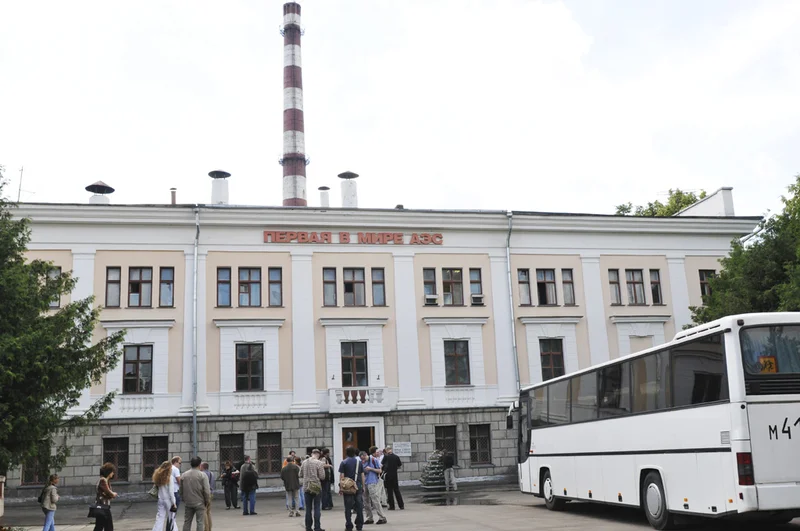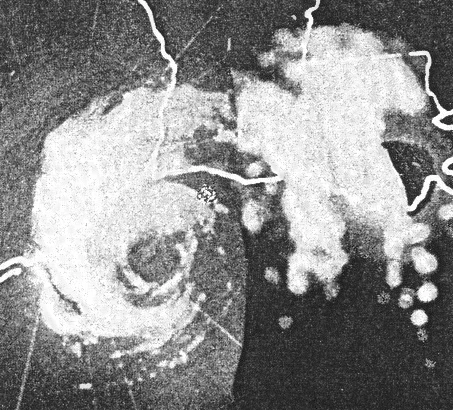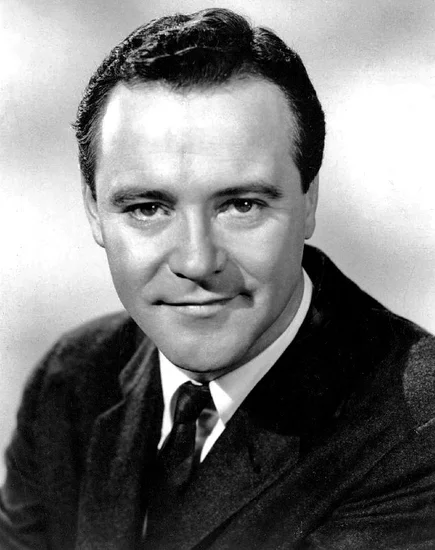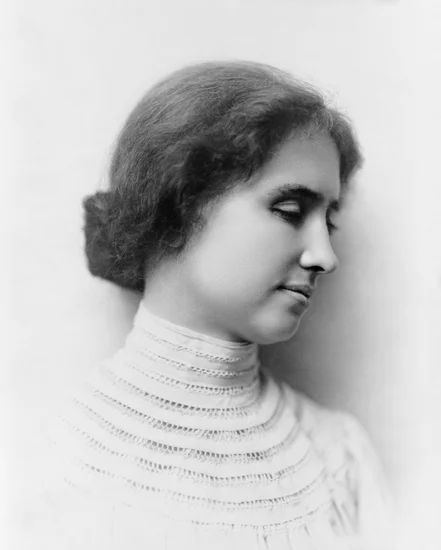June 27 stands as one of history’s most eventful days, witnessing the rise and fall of empires, groundbreaking discoveries, and moments that shaped our modern world across centuries of human achievement.

Politics and Government Events on June 27
1905 – Sailors Mutiny Aboard Russian Battleship Potemkin
During the height of the Russo-Japanese War, Russian sailors launched a dramatic mutiny aboard the battleship Potemkin. The rebellion quickly spread beyond the ship’s confines, inspiring revolutionary fervor across the Russian Empire.
The mutiny became a powerful symbol of resistance against Tsarist autocracy. This naval uprising later inspired Sergei Eisenstein’s legendary 1925 film, immortalizing the sailors’ courage in cinema history.
1941 – Romanian Authorities Launch Iași Pogrom
Romanian authorities orchestrated one of history’s most violent pogroms in the city of Iași, resulting in the systematic murder of at least 13,266 Jewish citizens. The massacre represented a horrific escalation of antisemitic violence in wartime Romania.
Local populations witnessed unprecedented brutality as authorities implemented their genocidal campaign. The Iași pogrom stands as one of the darkest chapters in Romanian history during World War II.
1973 – Uruguayan President Establishes Dictatorship
President Juan María Bordaberry dissolved Parliament and established a military dictatorship in Uruguay. This constitutional coup marked the beginning of a repressive era that would last over a decade.
Democratic institutions crumbled as authoritarian rule took hold across the small South American nation. The dictatorship implemented widespread censorship, political persecution, and human rights violations throughout the 1970s.
1977 – France Grants Independence to Djibouti
France formally granted independence to Djibouti, ending decades of colonial rule in the strategic Horn of Africa territory. The new nation gained control of crucial shipping lanes connecting the Red Sea and Indian Ocean.
International observers celebrated the peaceful transition from French colonial administration to sovereign statehood. Djibouti’s independence marked the end of France’s major colonial presence in East Africa.
2007 – Tony Blair Resigns as British Prime Minister

Tony Blair officially resigned as British Prime Minister after a decade-long tenure that transformed British politics. Chancellor Gordon Brown immediately succeeded him, inheriting leadership of both the Labour Party and the government.
Blair’s departure ended one of the most consequential political careers in modern British history. His resignation marked the conclusion of the New Labour era and its centrist approach to governance.
2024 – Biden-Trump Presidential Debate
President Joe Biden debated former President Donald Trump in a highly anticipated presidential debate. Biden’s perceived poor performance generated widespread concern about his cognitive abilities and electoral prospects.
The debate’s aftermath triggered intense speculation about Biden’s candidacy within Democratic circles. His withdrawal from the presidential race on July 21 directly traced back to this pivotal debate moment.
Military and Naval History on June 27
1941 – German Troops Capture Białystok
German forces captured the city of Białystok during the opening stages of Operation Barbarossa, Nazi Germany’s massive invasion of the Soviet Union. The rapid advance demonstrated the effectiveness of German blitzkrieg tactics against unprepared Soviet defenses.
Local residents faced immediate occupation as Wehrmacht units established military control throughout the region. The capture of Białystok opened crucial supply routes for Germany’s continued advance toward Moscow.
1944 – British Forces Liberate Mogaung
British Chindits, supported by Chinese forces, successfully liberated Mogaung from Japanese occupation. This victory marked the first major Allied success in recapturing Burmese territory from Japanese control.
The liberation demonstrated effective Allied coordination between British special forces and Chinese military units. Mogaung’s recapture provided crucial momentum for subsequent Allied operations throughout Burma.
1950 – United States Commits to Korean War
The United States officially decided to deploy combat troops to fight in the Korean War. This commitment marked America’s entry into a conflict that would last three years and reshape Cold War dynamics.
President Harry Truman authorized the deployment despite significant domestic opposition to foreign military involvement. The decision established a precedent for American military intervention in Cold War proxy conflicts.
1991 – Yugoslav Forces Invade Slovenia
Yugoslav troops, tanks, and aircraft invaded Slovenia just two days after the republic declared independence. The invasion launched the Ten-Day War, marking the beginning of Yugoslavia’s violent disintegration.
Slovenian territorial defense forces mounted fierce resistance against the federal army’s advance. The conflict became the first in a series of brutal wars that would destroy the Yugoslav federation.
Science and Discovery Milestones on June 27
1954 – Soviet Union Opens First Nuclear Power Plant

The Obninsk Nuclear Power Plant began operations near Moscow, becoming the Soviet Union’s first commercial nuclear power station. This technological achievement demonstrated Soviet expertise in peaceful nuclear energy applications.
The plant’s successful operation proved nuclear power’s viability for civilian electricity generation. Obninsk’s opening marked a crucial milestone in the global development of nuclear energy technology.
1982 – Space Shuttle Columbia’s Final Test Flight

Space Shuttle Columbia launched from Kennedy Space Center on mission STS-4, completing the final research and development flight in NASA’s shuttle program. The successful mission proved the shuttle system’s readiness for operational deployment.
Columbia’s crew conducted crucial experiments that validated the shuttle’s capabilities for future missions. This achievement marked NASA’s transition from experimental to operational space transportation.
1995 – Atlantis Docks with Russian Space Station Mir

Space Shuttle Atlantis launched on mission STS-71, achieving the first successful docking between an American shuttle and the Russian space station Mir. This historic mission demonstrated unprecedented cooperation between former Cold War adversaries.
The joint mission established crucial precedents for international space collaboration. Atlantis’s successful docking laid the groundwork for future partnerships that would culminate in the International Space Station.
2013 – NASA Launches Solar Observatory
NASA successfully launched the Interface Region Imaging Spectrograph space probe to conduct detailed observations of the Sun’s atmosphere. The sophisticated instrument provided unprecedented insights into solar magnetic field behavior.
Scientists gained revolutionary understanding of solar dynamics through the probe’s advanced imaging capabilities. The mission contributed crucial data for predicting space weather phenomena that affect Earth’s technology.
Cultural and Arts Events on June 27
1954 – Hungary-Brazil World Cup Match Turns Violent

The FIFA World Cup quarterfinal match between Hungary and Brazil, anticipated to be an exciting display of football artistry, instead erupted into unprecedented violence. Three players received ejections as the match descended into chaos.
Fighting continued in the tunnels after the final whistle, shocking international audiences. The match became known as the “Battle of Berne,” tarnishing the reputation of both football powerhouses.
1988 – Gare de Lyon Rail Accident

A devastating rail accident at Paris’s Gare de Lyon station killed 56 people and injured hundreds more. The tragedy highlighted serious safety deficiencies in France’s railway infrastructure.
Emergency responders worked frantically to rescue passengers trapped in the wreckage. The accident prompted comprehensive reforms in French railway safety protocols and equipment standards.
2001 – Tove Jansson Dies

Finnish author and illustrator Tove Jansson passed away, leaving behind the beloved Moomin series that enchanted generations of children worldwide. Her whimsical characters became cultural icons throughout Scandinavia and beyond.
Jansson’s artistic legacy extended far beyond children’s literature into painting and adult fiction. Her death marked the end of one of Finland’s most internationally celebrated creative careers.
Religious and Social Events on June 27
1946 – Canada Establishes Citizenship Definition
The Canadian Parliament passed the Canadian Citizenship Act, establishing the first legal definition of Canadian citizenship separate from British subject status. This legislation marked a crucial step in Canada’s journey toward full sovereignty.
The act created a distinctly Canadian national identity independent of colonial British connections. Parliament’s decision reflected growing Canadian nationalism and desire for complete political autonomy.
1924 – Aum Shinrikyo Releases Sarin Gas
Members of the Aum Shinrikyo religious cult released deadly sarin gas in Matsumoto, Japan, killing seven people and injuring 660 others. The attack demonstrated the dangerous potential of religious extremism combined with chemical weapons.
Emergency responders initially struggled to identify the mysterious poisoning symptoms affecting hundreds of victims. The incident foreshadowed the cult’s more devastating Tokyo subway attack the following year.
1981 – Chinese Communist Party Criticizes Mao
The Central Committee of the Chinese Communist Party issued its historic “Resolution on Certain Questions in the History of Our Party,” officially assigning blame for the Cultural Revolution to Mao Zedong. This unprecedented criticism marked a dramatic shift in Chinese political discourse.
Party leaders courageously acknowledged the devastating consequences of Mao’s radical policies. The resolution enabled China’s transition toward pragmatic economic reforms under Deng Xiaoping’s leadership.
Business and Economic Events on June 27
1924 – Johor-Singapore Causeway Opens

The Johor-Singapore Causeway officially opened after five years of construction, providing the first permanent land connection between Malaysia and Singapore. The causeway revolutionized trade and transportation between the two territories.
Commercial traffic immediately began flowing across the new bridge, boosting economic development throughout the region. The causeway became a crucial infrastructure link supporting Singapore’s emergence as a major trading hub.
1980 – Itavia Flight 870 Crashes

Itavia Flight 870 crashed into the Mediterranean Sea while traveling from Bologna to Palermo, killing all 81 passengers and crew members. The mysterious circumstances surrounding the crash generated decades of conspiracy theories and investigations.
Italian authorities struggled to determine the exact cause of the tragedy. The incident became known as the “Ustica Massacre,” with speculation ranging from mechanical failure to military involvement.
2008 – Robert Mugabe Wins Controversial Election
President Robert Mugabe secured re-election in Zimbabwe through a highly scrutinized election after his opponent Morgan Tsvangirai withdrew citing violence against supporters. The controversial victory further isolated Zimbabwe internationally.
Economic sanctions intensified as international observers condemned the electoral process. Mugabe’s disputed victory deepened Zimbabwe’s political crisis and economic isolation from the global community.
Transportation and Infrastructure on June 27
1927 – Rovaniemi Becomes Market Town
The Rovaniemi township decree was officially promulgated, enabling the Arctic community to secede from its rural municipality and establish itself as an independent market town. This administrative change took effect on January 1, 1929.
The new designation provided Rovaniemi with enhanced commercial privileges and administrative autonomy. The town’s elevation in status supported its development as a major center for Finnish Lapland.
1976 – Air France Flight 139 Hijacked
Terrorists from the Popular Front for the Liberation of Palestine hijacked Air France Flight 139 en route from Tel Aviv to Paris, diverting the aircraft to Entebbe, Uganda. The dramatic hijacking set the stage for one of history’s most famous rescue operations.
Passengers endured a terrifying ordeal as hijackers separated Jewish travelers from other passengers. The incident culminated in Israel’s daring rescue mission that became legendary in counter-terrorism operations.
2015 – Formosa Fun Coast Fire

A devastating dust explosion occurred at the Formosa Fun Coast water park in Taiwan, killing 15 people and injuring 497 others. The tragedy highlighted serious safety deficiencies in recreational facility management.
Emergency responders faced unprecedented challenges treating hundreds of burn victims simultaneously. The disaster prompted comprehensive reforms in Taiwan’s recreational facility safety regulations and emergency response protocols.
Sports and Recreation on June 27
1912 – Hurricane Audrey Devastates Gulf Coast

Hurricane Audrey made landfall near the Texas-Louisiana border, unleashing catastrophic destruction that killed over 400 people. The storm’s fury particularly devastated Cameron, Louisiana, and surrounding communities.
Coastal residents faced unprecedented storm surge and winds that obliterated entire neighborhoods. Audrey’s devastating impact prompted significant improvements in hurricane forecasting and emergency evacuation procedures.
1988 – Villa Tunari Massacre
Bolivian anti-narcotics police killed nine to twelve protesting coca-growing peasants and injured over one hundred others in the Villa Tunari massacre. The violent crackdown highlighted tensions between anti-drug efforts and indigenous rights.
International human rights organizations condemned the excessive use of force against peaceful protesters. The massacre intensified debates about coca cultivation’s cultural significance versus international drug control policies.
2017 – Petya Cyberattack Targets Ukraine

A series of powerful cyberattacks using Petya malware specifically targeted Ukrainian organizations and their international partners. The sophisticated assault demonstrated the growing threat of state-sponsored cyber warfare.
Government agencies, banks, and critical infrastructure suffered widespread disruption as the malware spread globally. The attack highlighted Ukraine’s vulnerability to cyber warfare amid its ongoing conflict with Russia.
Notable Births on June 27
1932 – Ross Perot Born

American businessman and political maverick Ross Perot was born in Texarkana, Texas. His entrepreneurial spirit and unconventional approach to business would later revolutionize the data processing industry.
Perot founded Electronic Data Systems and later became a billionaire through strategic business ventures. His independent presidential campaigns in 1992 and 1996 significantly influenced American political discourse.
1949 – Vera Wang Born

Fashion designer Vera Wang was born in New York City, destined to become one of America’s most influential designers. Her innovative approach to bridal fashion would transform the wedding industry worldwide.
Wang’s designs combined traditional elegance with contemporary sophistication, attracting celebrity clients and fashion enthusiasts. Her brand became synonymous with luxury bridal wear and high-end fashion accessories.
1975 – Tobey Maguire Born

American actor Tobey Maguire was born in Santa Monica, California, beginning a journey that would make him one of Hollywood’s most recognizable stars. His boyish charm and dramatic range attracted directors and audiences alike.
Maguire’s portrayal of Spider-Man in the early 2000s defined a generation’s understanding of superhero cinema. His performance helped establish the modern superhero movie genre’s commercial viability.
1985 – Nico Rosberg Born

German Formula One driver Nico Rosberg was born in Wiesbaden, inheriting racing talent from his father, former world champion Keke Rosberg. His multicultural background and natural driving ability prepared him for international racing success.
Rosberg’s rivalry with Lewis Hamilton at Mercedes-AMG created one of Formula One’s most compelling storylines. His 2016 world championship victory capped a remarkable career before his immediate retirement.
1984 – Khloé Kardashian Born

American media personality Khloé Kardashian was born in Los Angeles, California, into a family destined for unprecedented fame. Her charismatic personality and business acumen would help build a media empire.
Kardashian’s reality television career launched multiple successful business ventures including fashion and beauty brands. Her influence extended beyond entertainment into social media marketing and lifestyle branding.
1941 – Krzysztof Kieślowski Born
Polish filmmaker Krzysztof Kieślowski was born in Warsaw, destined to become one of cinema’s most philosophical directors. His contemplative approach to filmmaking explored profound themes of human existence and moral complexity.
Kieślowski’s “Three Colors” trilogy and “The Dekalog” series established him as a master of European art cinema. His films received international acclaim for their artistic depth and psychological insight.
Notable Deaths on June 27
2001 – Jack Lemmon Dies

Beloved American actor Jack Lemmon passed away at age 76, concluding a distinguished career that spanned over five decades. His versatile performances in both comedy and drama earned him two Academy Awards and international recognition.
Lemmon’s collaborations with director Billy Wilder and actor Walter Matthau created some of cinema’s most memorable moments. His death marked the end of Hollywood’s golden age of character acting.
2002 – John Entwistle Dies

John Entwistle, legendary bass guitarist for The Who, died at age 57, silencing one of rock music’s most influential rhythm sections. His powerful playing style and stoic stage presence earned him the nickname “The Ox.”
Entwistle’s innovative bass techniques influenced countless musicians and helped define rock music’s sound. His death left a profound void in one of rock’s most enduring bands.
2001 – Tove Jansson Dies

Finnish author and illustrator Tove Jansson passed away at age 86, leaving behind the beloved Moomin series that captivated children worldwide. Her whimsical creations became cultural ambassadors for Finnish literature and art.
Jansson’s artistic legacy extended beyond children’s books into painting and adult fiction. Her death marked the end of one of Scandinavia’s most internationally celebrated creative careers.
2005 – Shelby Foote Dies

American historian and author Shelby Foote died at age 88, concluding a remarkable career dedicated to preserving Civil War history. His three-volume narrative “The Civil War” became the definitive account of America’s most divisive conflict.
Foote’s appearances in Ken Burns’s documentary series brought Civil War history to millions of viewers. His death represented the loss of one of America’s most respected historical voices.
2015 – Chris Squire Dies

Chris Squire, founding member and bass guitarist of progressive rock band Yes, passed away at age 67. His distinctive bass style and harmony vocals helped define progressive rock’s complex musical arrangements.
Squire was the only member to appear on every Yes album throughout the band’s long career. His death marked the end of an era for progressive rock music and its dedicated fanbase.
2018 – Joe Jackson Dies

Joe Jackson, patriarch of the Jackson family and manager of the Jackson 5, died at age 89. His strict management style launched the careers of Michael Jackson and Janet Jackson, two of music’s biggest stars.
Jackson’s complex legacy included both remarkable success in developing his children’s talents and controversy over his demanding methods. His death closed a significant chapter in American popular music history.
Holidays and Observances on June 27
Canadian Multiculturalism Day
Canada celebrates Canadian Multiculturalism Day, recognizing the nation’s commitment to cultural diversity and inclusion. The observance highlights Canada’s official multiculturalism policy and its success in creating a harmonious multicultural society.
Communities across Canada organize festivals, cultural exhibitions, and educational programs celebrating their diverse heritage. The day reinforces Canada’s reputation as a welcoming destination for immigrants from around the world.
Independence Day of Djibouti

Djibouti celebrates its Independence Day, commemorating the nation’s liberation from French colonial rule in 1977. The small East African country gained sovereignty after decades of struggle for self-determination.
Citizens participate in parades, cultural performances, and official ceremonies honoring their national independence. The celebration emphasizes Djibouti’s strategic importance as a gateway between Africa and the Arabian Peninsula.
Helen Keller Day

The United States observes Helen Keller Day, honoring the remarkable achievements of the deaf-blind author and activist. Keller’s birthday serves as inspiration for people with disabilities and advocates for accessibility rights.
Educational institutions and disability organizations host special programs highlighting Keller’s contributions to literature and social justice. The day promotes awareness of disability rights and the importance of inclusive education.
National PTSD Awareness Day
The United States recognizes National PTSD Awareness Day, raising awareness about post-traumatic stress disorder and its impact on veterans and civilians. The observance encourages understanding and support for those affected by trauma.
Mental health organizations provide resources and support services for individuals struggling with PTSD symptoms. The day emphasizes the importance of professional treatment and community support for trauma survivors.
